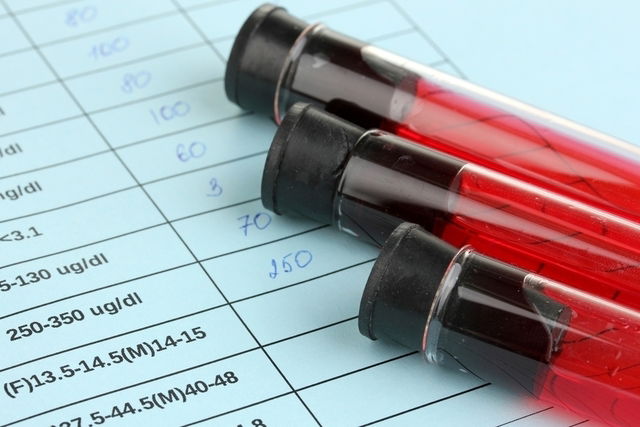Hematocrit (Hct) is a lab test that looks at the ratio of red blood cells to total blood volume. It is often used to help with the diagnosis of certain health conditions, like anemia. It is reported as a percentage.
Hematocrit levels may also reflect the amount of hemoglobin present on red blood cells: decreased hematocrit is usually a sign of decreased red blood cells or hemoglobin. High hematocrit may be a sign of decreased fluid in the blood, which may indicate severe dehydration.
Hct blood tests are not specific, meaning results are usually interpreted alongside other findings from the physical assessment and lab tests to reach a diagnosis.

Reference ranges
Hematocrit reference ranges vary from lab to lab, but generally, normal hematocrit levels are:
- Women: between 35 and 45%, although pregnant women may be closer to 34 to 47%
- Men: between 40 and 50%;
- Children over 1: between 37 and 44%.
Hematocrit levels should be interpreted alongside other results from a complete blood count. A very small change in MCH is not necessary a significant health concern, which is why results should be evaluated by the ordering physician. This test will be compared to other results and the physical exam to determine a diagnosis and treatment plan as necessary.
Low hematocrit level
A low Hct may be a sign of:
- Anemia
- Bleeding
- Malnutrition
- Decreased B12, folic acid and iron levels
- Leukemia
- Excessive hydration
During pregnancy, a low hematocrit may be a sign of anemia, especially if ferritin and hemoglobin levels are also low. Anemia during pregnancy is common, however it can be dangerous for both the mother and baby if not treated correctly.
High hematocrit level
High Hct levels usually occur as a result of decreased amounts of water in the blood. High Hct typically presents with high red blood cells and hemoglobin levels, which are also a sign of dehydration. Hct can also become elevated with lung disease, congenital cardiac disease, low blood oxygen levels or polycythemia (excessive production of red blood cells).
